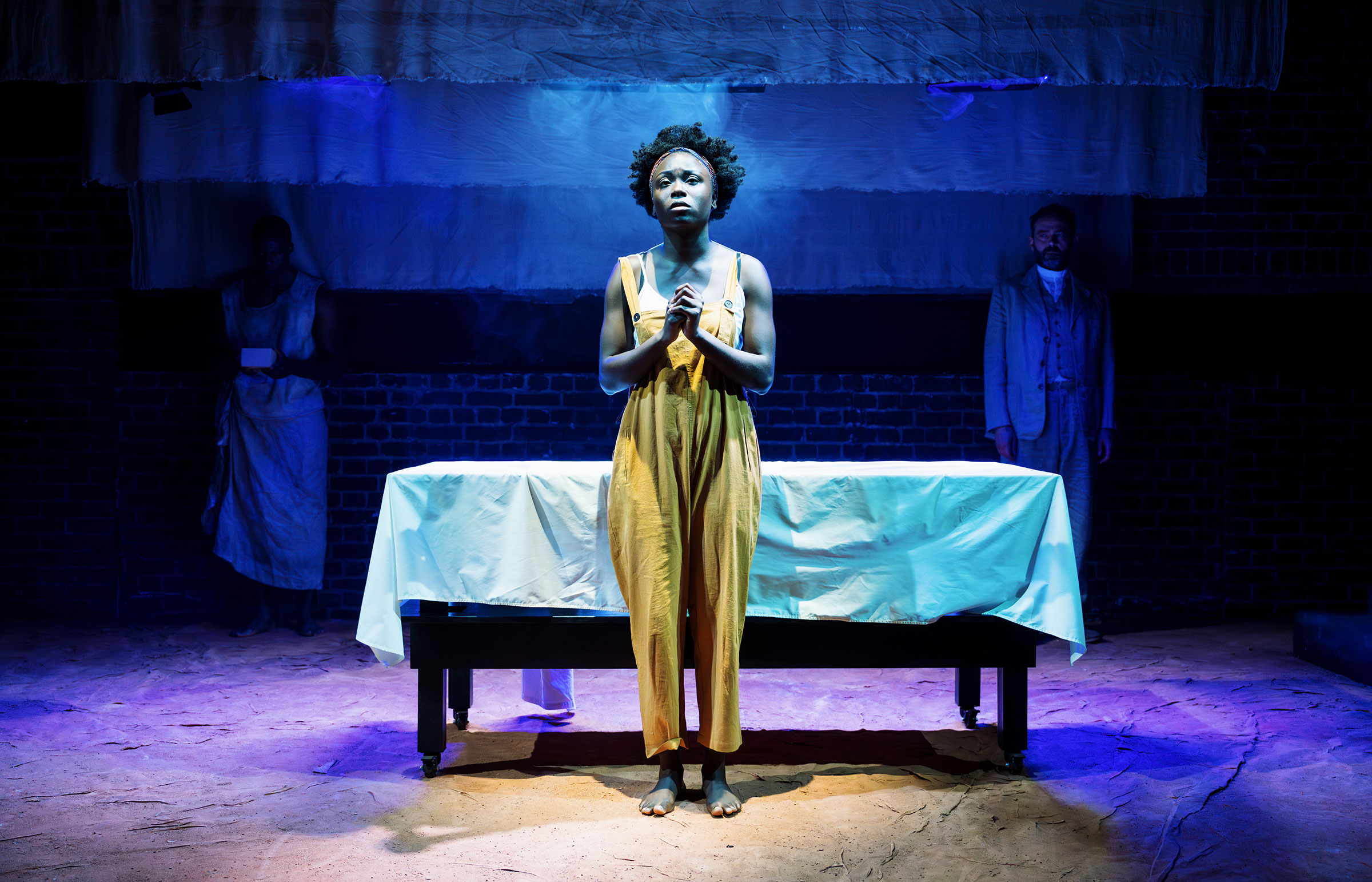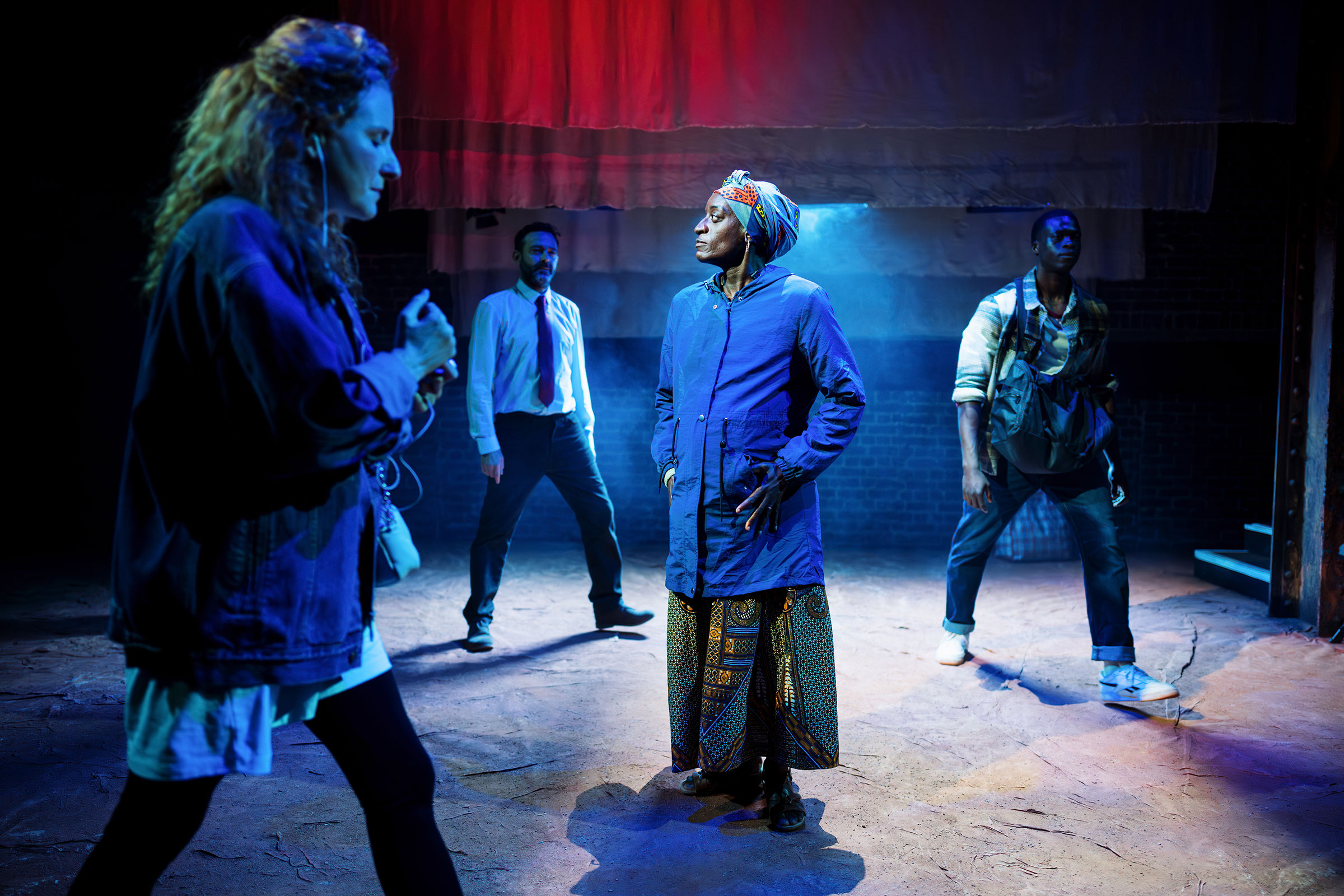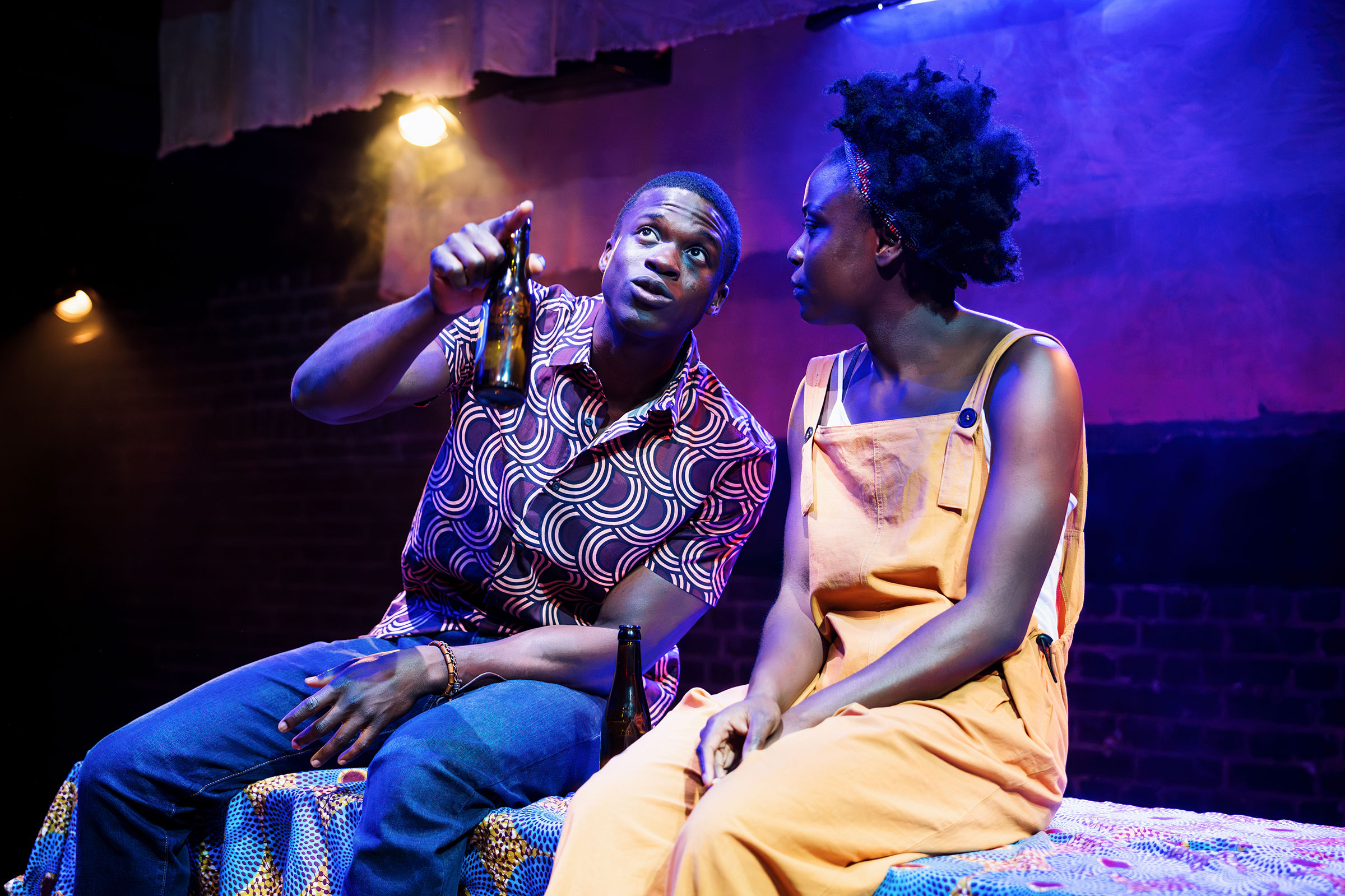
At a conference in London last year, I was privileged to hear the testimonies of women who had experienced conflict-related sexual violence (CRSV). Oscar’s Pearce’s Possession, playing now at the Arcola Theatre, features an interpretation of spaces such as this, concluding with a character affected by these circumstances releasing her long-held trauma to a rapt audience.
These spaces are characterised by a majority white audience, many of whom officially represent States with the power to end or de-escalate the active conflicts that condemn generations of brown and black communities globally. Sarah Amankwah’s performance as Kasimbaye Mabele is peerless in this scene and throughout. Yet this scene is also one of the hollowest moments of the night. It illustrates perfectly Possession’s fatal flaw – a play in conflict with itself.
The story is a relatively straightforward one. Kasimbaye Mabale gives birth to a daughter. Her names reflect where she was born, Victoria station, and what she means to her immigrant mother, who has left behind the extractives fuelled conflict in the Democratic Republic of Congo (DRC), Hope. In seeking to protect Hope from their traumatic past, Kasimbaye unwittingly drives her into the heart of it. Knowing nothing of what her mother endured, Hope accompanies Alice Young, an impassioned white woman juggling motherhood and her career as a journalist, to Congo as a nanny slash assistant, to devastating consequences.
The blurring of memory, reality, and consequence are explored through non-linear sequences and emphasised with the whole cast, save Amankwah, playing different roles. It was jarring at first, but as the characters and their motivations become clearer, this creative choice pays off, successfully grounding these otherwise abstract themes in action. It is even more impressive when you consider that Hope’s character’s story is told in the form of a bildungsroman, we follow her from birth to death in this jagged manner, and it still works.
But Hope is not the main character, despite top-billing and most of the stage time. This story is about Alice Young, who playwright Sarah Hails, explains in the programme reflects some of her own experiences as a working mum. It’s a barely discernible bait and switch but a critical one and is evident in the different treatment and humanisation afforded the characters. Hope is undoubtedly who we root for and want the best for, this is due in no small part to Diany Samba-Bandza, who develops the character admirably, imbuing her with the lightness and enthusiasm of youth while deftly giving way to a warm maturity that meets the fast-evolving realities of her choices. (Her brief but memorable turn as Mercy, a Congolese schoolgirl, is even more affecting).

But her character is really the sum of a great many traumas heaped upon her mother rather than a fully realised woman in her own right. She has no notable interests or hobbies, her natural attraction to a boy at 16 is treated as a reaction to her mother’s strictness. Even when she makes the defining choices of her life, and proudly advocates for her self-determination we are told that she is wrong. Both in her mother’s immediate and disappointed reaction and in the final moments of the play, when her mother is ‘proven’ right. Her death is entirely in service to Alice Young’s character development, and Kasimbaye’s transformation as participants.
In contrast, Alice Young is afforded a rich and beautifully complicated history in her profession, in her romantic life, we learn of her humour. Unfortunately, in addition to the screen time and monologues Alice is given, the light sketching of Hope’s character gives way to some lazy treatments of black characters through the white gaze. In the two sex scenes Hope is engaged in, they are captured as dances – even what should be a sweet first kiss becomes a choreographed routine. In contrast, Alice is kissed passionately and her sex scene is interrupted just before her partner engages in oral sex. There is no masking or romanticising, it is complicated, sexy, and frustrating all at once – Hope’s sex is … a dance? It’s giving magic negro.
Nedum Okonyia rounds out the cast, capably delivering impactful performances as Hope’s lovers David and George, and as tragically bereft Congolese father Nsala.
The women I heard about in November were not characters in the minds of creators with no lived experience of these multiple levels of oppression. Their testimonies were harrowing, and it was humbling to be invited into their deepest hurt in the hope that our audience had the power to bring about change.
The wordlessness that accompanies unimaginable wounds makes art necessary – it has a fundamental role in communicating what traumatized people cannot. At its strongest, Possession achieves this through movement, subtle motifs, quiet, considered moments and some of the most miraculous language I have heard in a production of late. Where it fails, painfully, is in seeking to mimic the very specific and sacred act of telling stories and doing so with stories that belong to others.
From rape survivors to the generational trauma between black families, these voices have a role in communicating when art communicates what survivor testimony simply cannot. The wordlessness that accompanies unimaginable wounds. Possession is able to translate these horrors into movements, quiet moments, motifs and words that do the work of parts of Possession, it translated these horrors into movement, motifs, and words Possession finds itself in its second act.
The awkward juxtapositions and inexplicable scene hopping of the first half settle as the loose ends start to thread a clearer line of narrative and exploration. The emotional beats land and I found myself enjoying the characters without questioning their characterisation so much. Sadly this unravels with an ending monologue that is a straight lecture, despite the phenomenal performance of Sarah Amankwah, it is all telling, no showing.

Hails’ poetic dialogue stuns throughout. It provides the rhythm to Hope’s carefully considered movement work by Tian Brown-Sampson and completely arrests the action when needed. At its best, it gives the main character Alice Young the scaffolding for her to ruminate over the choices she has made as a working mum with the taut fluidity required to hold these competing demands together.
So familiar to me was Alice Young’s hopeless white feminism I felt my heart harden towards her very early. Dorothea Myer-Bennett brings dexterity and real dedication to this role, imbuing an otherwise intolerable character who makes horrible choices. But the monologues do not on their own stand-up. Each act concludes with an overlong lecture about the horrors of active conflict in the DRC, and both leave the audience hollow.
When reviewing the programme later Alice Young is the most compelling character and like many white women working in settings occupied by black bodies, she is a woman in full possession of terms like complicit and the white gaze, but suffering from a complete deficit of self-awareness so for all her raging against the machine of patriarchy, she does nothing to disrupt the power dynamic that benefits her – and in fact weaponises her white womanhood struggles to reinforce it to devastating effect.
The cast is immaculate, standouts are Sarah Amankwah’s Kasambayi whose work throughout is so embodied, and I believed her so much.
Possession is a play about BIG ISSUES. Extraction! Colonisation! White privilege! Motherhood! Patriarchy! But I found myself frequently disconnected from the drama despite the lucidity, commitment and grace of the cast and the simple but effective staging.




























